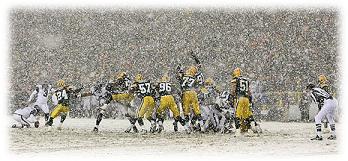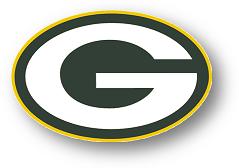Today’s post comes from Keith Cunningham, whose visit to Lambeau Field last month made an impression on his view of brands and the customer experience. And the good news is that the weather wasn’t horrible. Here’s Keith’s Packers POV:
 If you haven’t been to Lambeau Field for a Packers game, add it to your “bucket list.” And while the Packers are possibly the best team in the NFL this year, the fan experience at Lambeau Field is unquestionably the best in sports.
If you haven’t been to Lambeau Field for a Packers game, add it to your “bucket list.” And while the Packers are possibly the best team in the NFL this year, the fan experience at Lambeau Field is unquestionably the best in sports.
The Green Bay Packers are the only community-owned major league franchise in American sports. Therefore, it’s no secret that everything is about/for the fans – it has to be. Here’s how they run their operation and what it means to those of you who manage radio stations:
- There is a board of directors for the team who elect a President who represents the team to the league – this board is accountable to the community stock holders. It’s not quite like Wall Street in that we won’t see an angry “Occupy Lambeau” movement anytime soon. That’s because the Packers technically operate as a non-profit organization. That also means we won’t likely see them trade Aaron Rodgers next season just to throw some dollars to the bottom line.
- The Packers’ pre-and-post-game shows are performed live in the Atrium for anyone to watch, and players are often there participating and meeting fans. This mix of celebrity and fan is powerful in Green Bay, and something that other teams (radio stations) should consider.
- As I was told by a Packers-crazed guy I was sitting next to, the fans run the show at Lambeau – everything from the remodeling job of the stadium, the sound system volume, to what’s an appropriate increase in ticket prices. There is trust in the customer.
- At almost all the home games, fans are given a free something-or-other as they enter (a towel, seat cushion, a beer holder, etc.). Merchandizing and branding matter.
- There are multiple ways for fans to text or email suggestions about how their experience at Lambeau Field could have been better – and suggestions are reviewed and often implemented. A feedback loop is important – in the NFL experience and in radio.
- There’s an 80,000 person waiting list for season tickets (that means there are more names on the waiting list than there are seats at Lambeau Field). You know that list will likely last longer than a generation. They understand how to build demand and loyalty.
- There’s a strict code of conduct for fans at Lambeau Field. Violate them and you’ll lose your season tickets. The team, the players, and the athletes share a mutual respect for one another.
- If a player steps out of line, he’ll likely be persona non grata in the community (in other words, Pac Man Jones would never be allowed to play for the Packers). When Mosey Cade played for the team in the ‘80s and got himself in trouble, he was shunned by the town, whereas in other NFL markets, it is often business as usual.
So, as I sat there watching the Packers crush the Raiders a few weeks ago, I was truly amazed by how connected to the fans this team is. And I couldn’t help but think about how disconnected many radio stations are with their audience base.
 Lori Lewis, a Green Bay native, explains that it is less about Lambeau Field, and more about this small town’s attachment to the players – and vice-versa. These guys are embedded in the community from the Donald Driver softball game (started by Brett Favre) to the Packers 5K run/walk where thousands participate.
Lori Lewis, a Green Bay native, explains that it is less about Lambeau Field, and more about this small town’s attachment to the players – and vice-versa. These guys are embedded in the community from the Donald Driver softball game (started by Brett Favre) to the Packers 5K run/walk where thousands participate.
Even when former Packers players – even the journeymen – come back to town for autograph sessions, the locals show up. They are connected to the players and that local feeling.
The analogies to radio are obvious and pretty simple. Without an emphasis on local fans and feeding their passion, there would not be brands like WMMR, KISW, KIIS or KGO. I’ll spare you the clichés about multiple consumer choice and the “whys” of giving the audience a seat at the table. But in this new year, I urge you to look at some of those Green Bayisms and relate them to local radio – each has a simple application that could better the station-fan relationship.
If we spent as much time thinking about how to truly connect with and super-serve our hometown audiences as we do on financial spreadsheets and music scheduling, and if we maintained that vision when making critical decisions, 2012 could be a pretty good year for radio, just like it probably will be for the Packers and their fans.
Win or lose, it is about the CX – the customer experience.
Happy New Year.
- Simply Unpredictable - April 10, 2025
- Flush ‘Em Or Fix ‘Em?What Should Radio Do About Its Aging Brands? - April 9, 2025
- Radio: It’s Time To Stop Playing Small Ball - April 8, 2025




I always appreciate it when my home town gets acknowledged – especially when it’s about the Packers. These players that come to Green Bay, play for the love of the game – not the spotlight so much. It’s such a small town to have to live in for any amount of time and these guys really reach out to the community and become a part of our daily lives.
They make us feel like they are “one of us” when you know they are not. Most of us from Green Bay are blue collar, little flash and very simple wants in our lives. Packers players on the other hand are bringing in hundreds of thousands to sometimes millions of dollars – yet when you meet them at the local “Shopko” you’d never know it.
Pretty special for the players to reflect the community.
I think your Green Bay Packers perspective has helped you in your work with social media, better understanding those local connections. At a time when radio may be gravitating away from these values, the Packers are an example of how to do local right. Thanks for the inspiration.
great read and great thinking on branding. how many GM’s are reading this? Also, I wonder what would happen to the Packers and fan loyalty if there was another NFL team in Green Bay…would never happen, of course but it’s easy to have a loyal fan base when you’re the only game in town
Thanks, David. The Packers could mail it in, and the place would still be filled every Sunday. Their example is being a great, local, connected brand when they don’t have to. I’m thinking an arena football team in GB wouldn’t do too well. Thanks for the comment.